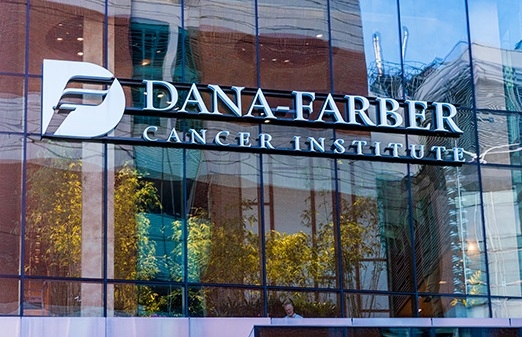Deerfield Management and the Dana-Farber Cancer Institute are at it again. Two years after teaming up on protein degradation R&D, the duo has inked a 10-year partnership aimed at turning scientific discoveries at Dana-Farber into new medicines and diagnostics for cancer.
Under the deal, Deerfield will invest up to $130 million over the next 10 years in research at Dana-Farber and translating that research into actual treatments for patients. The project, dubbed Riverway Discoveries, represents the first time Deerfield has tapped one of its academic partners for more, according to a statement. Their first partnership, struck in November 2018, saw Deerfield commit $80 million to set up the Center for Protein Degradation at Dana-Farber.
“Translational funding in biomedical research, when the promise of success is not obvious or guaranteed, can often be the engine that ensures innovative research moves forward, paving the way for important discoveries and new and better therapies,” Dana-Farber president and CEO, Laurie Glimcher, M.D., said in the statement. “I am hopeful that this investment by Deerfield at Dana-Farber now will eventually help improve the lives of people with cancer everywhere.”
A Riverway committee drawn from Dana-Farber and Deerfield will start considering proposals from Dana-Farber researchers later this month. Through Riverway, Deerfield will fund selected projects and provide operational support.
Deerfield has struck similar agreements with other institutions, including the University of Illinois at Chicago, Columbia University and Harvard University. Deerfield has set up new companies with each of the three universities to help translate early scientific work into treatments with development plans.
In the case of Harvard, the new company, Lab1636, will be wholly owned by Deerfield’s affiliates and will support R&D projects at the university through various stages of discovery and development. Lab1636 could help teams from Harvard validate drug targets or reach the proof of concept needed to file an IND application, as well as license their work out to other companies when it “eventually outgrows the lab bench,” Deerfield said at the time.
As for the University of Illinois, its Office of Technology Management already helps students, faculty and staff license their work out to companies. But West Loop Innovation, the new company it set up with Deerfield, could help the startups that license that work get off the ground.

